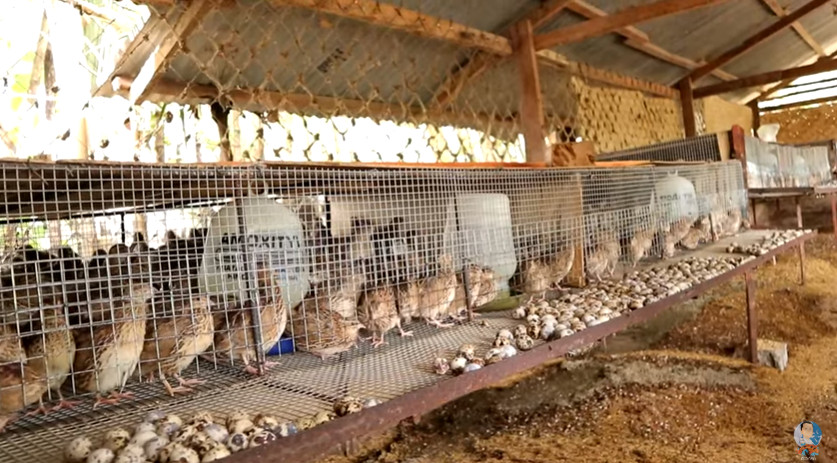Hey there, fellow home enthusiasts!
I’m always on the hunt for innovative ways to live sustainably and promote eco-friendly practices. It’s astounding how many opportunities there are out there, from green energy to eco-friendly furniture, and everything in between. But recently, I stumbled onto something rather unexpected: quail farming. That’s right, those tiny birds can be the key to a more sustainable lifestyle. And, if you’re interested in how to raise quail in your backyard, I’ve discovered an amazing guide on raising quail that’s packed with hands-on advice and tips.

Content
1. Low Footprint
Unlike other livestock or poultry, quails have a minimal environmental footprint. Their small size means they don’t require a vast amount of space. In fact, you could even consider converting a part of your garden into a quail haven without significantly compromising its aesthetics. This means less deforestation and land usage, especially when compared to more extensive farming operations.
2. Efficient Feed Conversion
What’s remarkable about quails is their efficient feed conversion rate. They can produce the same amount of meat using much less food compared to larger birds or mammals. Efficient feed conversion not only means less food waste but also translates to lesser costs for the farmer, making it an economically sustainable choice. Interested in sustainable food practices? Check out this article on how to control your appetite with mindful eating.
3. Quick Maturation
Time is an essential resource, and quails don’t waste any of it. These birds mature quickly, laying eggs as early as 6 weeks old. This rapid lifecycle ensures that farmers can get a return on their investments faster, making it a lucrative option for those who might be on the fence about getting into farming.
4. Multipurpose Use
While quails are primarily raised for their meat and eggs, there are other benefits to consider. Their droppings are an excellent organic fertilizer, and if you’re thinking of starting a green garden or even a mini farm, quail manure can be a game-changer. Speaking of sustainable farming practices, have you ever thought about transforming your home? This guide on how to transform your home into an eco-friendly paradise might just inspire you.
5. Biosecurity and Health Benefits
Quails are hardy birds. Their small size and unique physiology mean they’re less prone to common poultry diseases. This reduces the need for antibiotics and other chemicals, leading to more organic and healthier meat. Plus, quail eggs are a delicacy in many cultures, packed with vitamins and beneficial nutrients.
In conclusion, quail farming, despite its seemingly niche market, offers an array of benefits from both an environmental and economic standpoint. If you’ve been searching for a unique way to contribute to the global sustainability movement, consider giving quail farming a shot. And remember, whether it’s sustainable farming, green energy, or even eco-friendly home decoration, every small step counts towards a brighter future.
Quail Eggs: A Nutritional Powerhouse
Quail eggs might be small, but they’re mighty when it comes to nutrition. They contain a higher concentration of essential vitamins and minerals compared to chicken eggs, including Vitamin B1, iron, and potassium. These nutrients are essential for a variety of body functions, including energy production and maintaining healthy blood pressure. Furthermore, they’re an excellent source of choline, which supports brain health. When it comes to quality protein, quail eggs stand out, providing all nine essential amino acids.
An Ethical Choice for Meat Consumers
Beyond their sustainable nature, quail farming can also be viewed as a more ethical choice when compared to large-scale factory farming. Quails raised in smaller, backyard-style farms often experience better living conditions than chickens or turkeys in large industrial farms. Their rapid growth means they can be harvested sooner, reducing the time they spend in captivity. Furthermore, many small-scale quail farmers prioritize the welfare of their birds, ensuring they have adequate space to move, access to natural light, and are fed organic diets. As a result, consumers can enjoy quail meat with the knowledge that the birds were raised humanely.
Incorporating Quail into Modern Culinary Delights
In the culinary world, quail is often associated with gourmet dishes and upscale restaurants. Their delicate flavor and tender meat make them ideal for various recipes, from roasts to stews. Quail eggs, with their rich, robust yolks, are also making a splash in modern cuisine, garnishing salads, burgers, and even sushi rolls. For home chefs looking to experiment with unique and sustainable meat sources, quail offers versatility and a touch of luxury to everyday meals. Their petite size also makes them perfect for single-serving dishes, ensuring that no food goes to waste.

I am Scott Miller and my love is writing about home improvement. I write mostly about home ideas, but also share some tips and tricks that can make your life easier when it comes to getting things done in the house.











